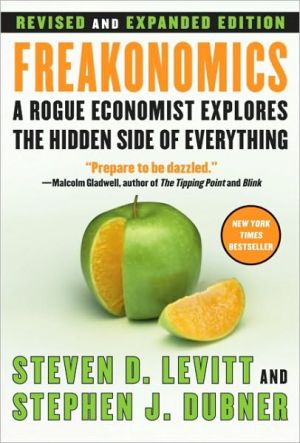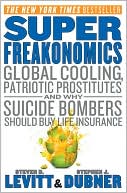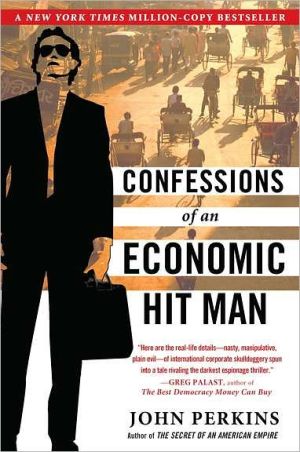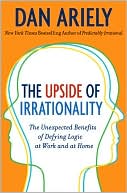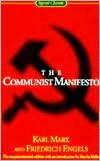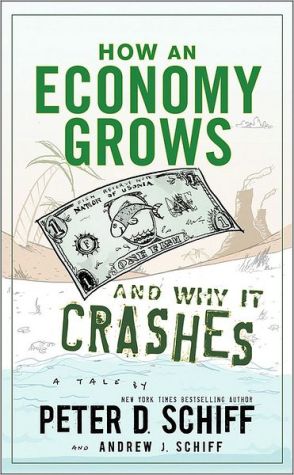Freakonomics: A Rogue Economist Explores the Hidden Side of Everything
Which is more dangerous, a gun or a swimming pool? What do schoolteachers and sumo wrestlers have in common? Why do drug dealers still live with their moms? How much do parents really matter? What kind of impact did Roe v. Wade have on violent crime?\ \ These may not sound like typical questions for an economist to ask. But Steven D. Levitt is not a typical economist. He is a much heralded scholar who studies the stuff and riddles of everyday life -- from cheating and crime to sports and...
Search in google:
Levitt (economics, U. of Chicago) and writing collaborator Dubner (a writer for the New York Times and The New Yorker) dub the material in this work "freakonomics" because Levitt uses analytical tools from economics to address a range of questions that, at first glance, might seem to be far removed from the discipline of the "dismal science." They consider questions such as how to determine if teachers are aiding in students' cheating on standardized tests, the impact of information asymmetry on the operation of the Ku Klux Klan, how the organizational structure of crack gangs resemble other businesses, and the influence of parents on child development. Annotation ©2004 Book News, Inc., Portland, OR The New York York Times - Jim Holt Economists can seem a little arrogant at times. They have a set of techniques and habits of thought that they regard as more ''rigorous'' than those of other social scientists. When they are successful -- one thinks of Amartya Sen's important work on the causes of famines, or Gary Becker's theory of marriage and rational behavior -- the result gets called economics. It might appear presumptuous of Steven Levitt to see himself as an all-purpose intellectual detective, fit to take on whatever puzzle of human behavior grabs his fancy. But on the evidence of Freakonomics, the presumption is earned.
Chapter One\ What Do Schoolteachers\ \ and Sumo Wrestlers\ \ Have in Common?\ Imagine for a moment that you are the manager of a day-care center. You have a clearly stated policy that children are supposed to be picked up by 4 p.m. But very often parents are late. The result: at day's end, you have some anxious children and at least one teacher who must wait around for the parents to arrive. What to do?\ A pair of economists who heard of this dilemma -- it turned out to be a rather common one -- offered a solution: fine the tardy parents. Why, after all, should the day-care center take care of these kids for free?\ The economists decided to test their solution by conducting a study of ten day-care centers in Haifa, Israel. The study lasted twenty weeks, but the fine was not introduced immediately. For the first four weeks, the economists simply kept track of the number of parents who came late; there were, on average, eight late pickups per week per day-care center. In the fifth week, the fine was enacted. It was announced that any parent arriving more than ten minutes late would pay $3 per child for each incident. The fee would be added to the parents' monthly bill, which was roughly $380.\ After the fine was enacted, the number of late pickups promptly went ... up. Before long there were twenty late pickups per week, more than double the original average. The incentive had plainly backfired.\ Economics is, at root, the study of incentives: how people get what they want, or need, especially when other people want or need the same thing. Economists love incentives. They love to dream them up and enact them, study them and tinker with them. The typical economist believes the world has not yet invented a problem that he cannot fix if given a free hand to design the proper incentive scheme. His solution may not always be pretty -- it may involve coercion or exorbitant penalties or the violation of civil liberties -- but the original problem, rest assured, will be fixed. An incentive is a bullet, a lever, a key: an often tiny object with astonishing power to change a situation.\ We all learn to respond to incentives, negative and positive, from the outset of life. If you toddle over to the hot stove and touch it, you burn a finger. But if you bring home straight A's from school, you get a new bike. If you are spotted picking your nose in class, you get ridiculed. But if you make the basketball team, you move up the social ladder. If you break curfew, you get grounded. But if you ace your SATs, you get to go to a good college. If you flunk out of law school, you have to go to work at your father's insurance company. But if you perform so well that a rival company comes calling, you become a vice president and no longer have to work for your father. If you become so excited about your new vice president job that you drive home at eighty mph, you get pulled over by the police and fined $100. But if you hit your sales projections and collect a year-end bonus, you not only aren't worried about the $100 ticket but can also afford to buy that Viking range you've always wanted -- and on which your toddler can now burn her own finger.\ An incentive is simply a means of urging people to do more of a good thing and less of a bad thing. But most incentives don't come about organically. Someone -- an economist or a politician or a parent -- has to invent them. Your three-year-old eats all her vegetables for a week? She wins a trip to the toy store. A big steelmaker belches too much smoke into the air? The company is fined for each cubic foot of pollutants over the legal limit. Too many Americans aren't paying their share of income tax? It was the economist Milton Friedman who helped come up with a solution to this one: automatic tax withholding from employees' paychecks.\ There are three basic flavors of incentive: economic, social, and moral. Very often a single incentive scheme will include all three varieties. Think about the anti-smoking campaign of recent years. The addition of a $3-per-pack "sin tax" is a strong economic incentive against buying cigarettes. The banning of cigarettes in restaurants and bars is a powerful social incentive. And when the U.S. government asserts that terrorists raise money by selling black-market cigarettes, that acts as a rather jarring moral incentive.\ Some of the most compelling incentives yet invented have been put in place to deter crime. Considering this fact, it might be worthwhile to take a familiar question -- why is there so much crime in modern society? -- and stand it on its head: why isn't there a lot more crime?\ After all, every one of us regularly passes up opportunities to maim, steal, and defraud. The chance of going to jail—thereby losing your job, your house, and your freedom, all of which are essentially economic penalties -- is certainly a strong incentive. But when it comes to crime, people also respond to moral incentives (they don't want to do something they consider wrong) and social incentives (they don't want to be seen by others as doing something wrong). For certain types of misbehavior, social incentives are terribly powerful. In an echo of Hester Prynne's scarlet letter, many American cities now fight prostitution with a "shaming" offensive, posting pictures of convicted johns (and prostitutes) on websites or on local-access television. Which is a more horrifying deterrent: a $500 fine for soliciting a prostitute or the thought of your friends and family ogling you on www.HookersAndJohns.com ...\ \ The foregoing is excerpted from Freakonomics by Steven D. Levitt and Stephen J Dubner. All rights reserved. No part of this book may be used or reproduced without written permission from HarperCollins Publishers, 10 East 53rd Street, New York, NY 10022
Introduction : the hidden side of everything31What do schoolteachers and sumo wrestlers have in common?192How is the Ku Klux Klan like a group of real-estate agents?553Why do drug dealers still live with their moms?894Where have all the criminals gone?1175What makes a perfect parent?1476Perfect parenting, Part II; or : would a Roshanda by any other name smell as sweet?179Epilogue : two paths to Harvard205
\ From Barnes & NobleIs this book's appeal due to its wacky revisionist title, its unsettling take on Roe v. Wade, or just its compulsively readable argument that economics does nothing more than study the incentives that drive us? Probably all of the above. What we do know is that it's the only economics book we've ever labeled a page-turner. An extraordinary work of social science explanation without oversimplification.\ \ \ \ \ Jim HoltEconomists can seem a little arrogant at times. They have a set of techniques and habits of thought that they regard as more ''rigorous'' than those of other social scientists. When they are successful -- one thinks of Amartya Sen's important work on the causes of famines, or Gary Becker's theory of marriage and rational behavior -- the result gets called economics. It might appear presumptuous of Steven Levitt to see himself as an all-purpose intellectual detective, fit to take on whatever puzzle of human behavior grabs his fancy. But on the evidence of Freakonomics, the presumption is earned.\ — The New York York Times\ \ \ Publishers WeeklyThough the idea of listening to an economics text may bring to mind nightmarish visions of incomprehensible facts, figures and graphs, this audiobook is refreshingly accessible and engrossing. Journalist Dubner reads with just the right mix of enthusiasm and awe, revealing juicy morsels of wisdom on everything from what sumo wrestlers and teachers have in common (a propensity to cheat) to whether parents can really push their kids to greatness by buying them Baby Einstein toys and enlisting them in numerous before- and after-school activities (not really). The only section that doesn't translate well to the format is the final one on naming conventions. The lists of "White Girl Names" and "Black Girl Names," and "Low-End" names and "High-End" names can be mind-numbing, though the text that breaks up these lists will intrigue. Overall, however, these unusual investigations by Levitt, the "rogue" of the subtitle, make for meaty-and entertaining-listening. Simultaneous release with the Morrow hardcover (Reviews, Mar. 14). (May) Copyright 2005 Reed Business Information.\ \ \ \ \ Library JournalEconomist Levitt and Dubner (Turbulent Souls) team up in this intriguing, quirky look at life and how to understand better the world in a new way. In 2003, the New York Times Magazine sent Dubner to do a profile of Levitt, and the idea for this book was born. Levitt looks at a variety of data, including KKK membership rolls, online dating services, and names for children, and finds in the math underlying answers to difficult questions that have a freakish quality. The quirky chapters include the commonality between schoolteachers and sumo wrestlers, why drug dealers still live with their mothers, and what makes a perfect parent. The crisp, bright narration by Dubner enlivens this title, which will appeal to fans of Malcolm Gladwell's The Tipping Point as well as to economists. Recommended for university libraries supporting a business and economics curriculum and larger public libraries.-Dale Farris, Groves, TX Copyright 2005 Reed Business Information.\ \ \ \ \ Kirkus ReviewsWhy do drug dealers live at home? Levitt (Economics/Univ. of Chicago) and Dubner (Confessions of a Hero Worshiper, 2003, etc.), who profiled Levitt for the New York Times, team up to demolish conventional wisdom. To call Levitt a "rogue economist" may be a tad hyperbolic. Certainly this epitome of antistyle ("his appearance is High Nerd: a plaid button-down shirt, nondescript khakis and a braided belt, brown sensible shoes") views the workaday world with different eyes; the young economist teases out meaning from juxtapositions that simply would not occur to other researchers. Consider this, for instance: in the mid-1990s, just when the Clinton administration projected it was about to skyrocket, crime in the U.S. fell markedly. And why? Because, Levitt hazarded a few years ago, of the emergent effects of the Roe v. Wade decision: legalized abortion prevented the births of millions of poor people who, beset by social adversity, were "much more likely than average to become criminals." The suggestion, Dubner writes, "managed to offend just about everyone," conservative and liberal alike, but it had high explanatory value. Levitt hasn't shied away from controversy in other realms, either, preferring to let the numbers speak for themselves: a young man named Jake will earn more job interviews than one with the same credentials named DeShawn; the TV game show The Weakest Link, like society as a whole, discriminates against the elderly and Hispanics; it is human nature to cheat, and the higher up in the organization a person rises, the more likely it is that he or she will cheat. Oh, yes, and street-level drug dealers live at home with their moms because they have to; most earn well belowminimum wage but accept the bad pay and dangerous conditions to get a shot at the big time, playing in what in effect is a tournament. "A crack gang works pretty much like the standard capitalist enterprise," Levitt and Dubner write, "you have to be near the top of the pyramid to make a big wage." An eye-opening, and most interesting, approach to the world.\ \ \ \ \ Malcolm Gladwell"Steven Levitt has the most interesting mind in America... Prepare to be dazzled."\ \ \ \ \ Great Reads"Principles of economics are used to examine daily life in this fun read."\ \ \ \ \ Kurt Andersen"Freakonomics is politically incorrect in the best, most essential way.... This is bracing fun of the highest order."\ \ \ \ \ Entertainment Weekly"The funkiest study of statistical mechanics ever by a world-renowned economist... Eye-opening and sometimes eye-popping"\ \ \ \ \ Philadelphia Daily News"Levitt is a number cruncher extraordinaire."\ \ \ \ \ Associated Press“An unconventional economist defies conventional wisdom.”\ \ \ \ \ Associated Press Staff"An unconventional economist defies conventional wisdom."\ \ \ \ \ Wall Street Journal"If Indiana Jones were an economist, he’d be Steven Levitt… Criticizing Freakonomics would be like criticizing a hot fudge sundae."\ \ \ \ \ Financial Times"Levitt is one of the most notorious economists of our age."\ \ \ \ \ Inside the List"The trivia alone is worth the cover price."\ \ \ \ \ San Diego Union-Tribune"Levitt dissects complex real-world phenomena, e.g. baby-naming patterns and Sumo wrestling, with an economist’s laser."\ \ \ \ \ Washington Post Book World"The guy is interesting!"\ \ \ \ \ Salon.com"A showcase for Levitt’s intriguing explorations into a number of disparate topics…. There’s plenty of fun to be had."\ \ \ \ \ Fort Worth Star-Telegram"Freakonomics was the ‘It’ book of 2005."\ \ \ \ \ Business World"An easy, funny read. Many unsolvable problems the Americans have could be solved with simple means."\ \ \ \ \ Book Sense Picks and Notables"Freakonomics challenges conventional wisdom and makes for fun reading."\ \ \ \ \ New York Times Book Review: Inside the List“Provocative… eye-popping.”\ \ \ \ \ The Daily Standard"One of the decade’s most intelligent and provocative books."\ \ \ \ \ People: Great Reads“Principles of economics are used to examine daily life in this fun read.”\ \ \ \ \ New York Times Book Review: Inside the List“Provocative… eye-popping.”\ \ \ \ \ People: Great Reads“Principles of economics are used to examine daily life in this fun read.”\ \
